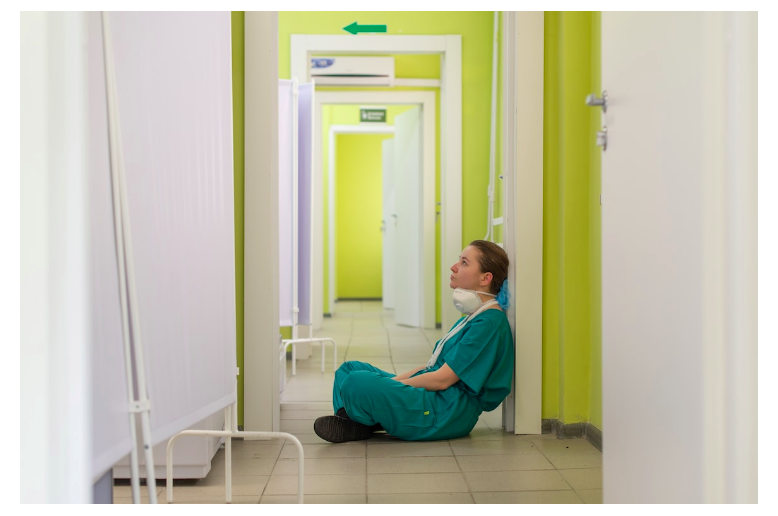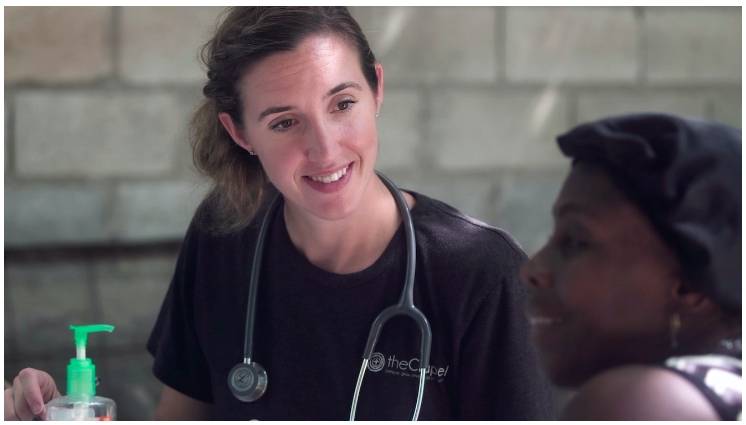Breaking Down the Different Specializations in Nursing
Nursing is a vast and diverse field, encompassing a wide range of medical specializations, certifications, and licenses. Whether you are considering the profession or are already working in the industry, it pays to become familiar with each specialty. From ER nursing to geriatric nursing, we will tell you all. Look no further!

Gerontology Nursing
Gerontology nursing is a vital field that focuses on caring for older adults. It encompasses a variety of tasks, from aiding in basic daily activities to developing comprehensive care plans for individuals with complex health conditions.
These nurses possess specialized skills and knowledge that are essential in providing top-quality care to elderly patients. If you are planning to jump into this career path, the adult gerontology nurse practitioner masters program could be your starting point. You would be trained to assess patients' physical, emotional, and mental needs, provide appropriate treatment, and collaborate with interdisciplinary teams to ensure holistic care. As the world's population ages, the need for gerontology nurses will only continue to grow.
Cardiac Nursing
Cardiac nursing is a crucial aspect of healthcare that offers specialized care for patients with heart-related conditions. This area of nursing requires a great deal of expertise, as the heart is arguably the most essential organ in the human body.
Cardiac nurses are highly trained professionals who are tasked with monitoring patients' symptoms and administering medical treatment as necessary. They also play an essential role in educating patients and their families about heart health, preventative measures, and overall wellness. With the prevalence of heart diseases on the rise, the need for skilled cardiac nurses has never been greater. Therefore, it's vital that these medical professionals continue to receive the training and support necessary to provide the best care possible to their patients.
Neonatal Nursing
Neonatal nursing is a specialized field that deals with caring for babies who are born prematurely or with serious health conditions. Neonatal nurses are highly trained individuals who work in neonatal intensive care units (NICUs) and provide care to newborns in their first few weeks or months of life. They are responsible for monitoring and administering medication, monitoring vital signs, and providing support to both the baby and their parents.
These nurses must have a deep understanding of neonatal physiology, as well as the ability to work collaboratively with other medical professionals. It is a challenging but immensely rewarding field, and neonatal nurses play an essential role in helping these fragile babies thrive.
Oncology Nursing
Oncology nursing is a critical field that focuses on caring for individuals who are battling cancer. These are highly trained healthcare professionals who specialize in providing compassionate care and support to patients diagnosed with cancer. They work alongside physicians and other healthcare professionals to provide personalized treatment plans, manage symptoms and side effects, and offer emotional support to patients and their families.
As caregivers, oncology nurses are committed to providing the highest level of care to their patients, ensuring they are as comfortable and pain-free as possible throughout their treatment journey. Their dedication and expertise are valuable to those they care for and contribute greatly to the fight against cancer.
ER nursing
Also known as emergency nursing, ER is one of the most challenging and rewarding specialties in the nursing profession. ER nurses are the first line of defense in the emergency department and are responsible for assessing, stabilizing, and treating patients with acute and life-threatening conditions. They are trained to think critically and quickly in high-pressure situations, and their skills and expertise are vital in saving the lives of patients. ER nursing requires exceptional communication, empathy, and decision-making skills, as well as physical strength and endurance.
Despite the demands of the job, ER nurses find fulfillment in knowing that they can make a difference in patients' lives and help them through some of their most challenging times.
Psychiatric and Mental Health Nursing
Psychiatric and mental health nursing is a field of nursing that pays attention to the mental well-being of patients. Mental health issues can vary from anxiety and depression to bipolar disorder and schizophrenia, and psychiatric nurses are trained to support individuals with a range of these issues.
A psychiatric nurse helps patients manage their symptoms and offers support and guidance to both the patient and their families. The role of a psychiatric nurse is multi-faceted and involves listening, critically analyzing, and communicating with a patient to understand their concerns.
They often work in challenging situations that can test their patience and empathy, but it is their unwavering dedication that helps them make a positive impact on their patients' lives.
Certified Registered Nurse Anesthetist
Certified Registered Nurse Anesthetists (CRNAs) are highly skilled healthcare professionals who specialize in administering anesthesia to patients in various medical settings. As advanced practice registered nurses, they work closely with physicians, dentists, and other healthcare providers to ensure the safe and effective delivery of anesthesia during surgical procedures.
CRNAs undergo extensive training and education, including at least a master's degree, to gain expertise in pharmacology, physiology, and patient monitoring. They play a crucial role in patient's well-being, ensuring that they remain comfortable and pain-free throughout their procedures. If you need anesthesia during your next medical procedure or surgery, rest assured that a CRNA is on hand to provide the highest level of care.

When weighing all of these factors, it is clear to see the vast array of options and opportunities available in this field. Each specialty has its own unique rewards and challenges but ultimately these nurses share a common goal of delivering quality healthcare for the benefit of all.
Regardless of their area of expertise or day-to-day obligations, these medical professionals are the heart and soul of this society. And if you see yourself taking up this career, you should know that you are making a valuable contribution to the betterment of healthcare.








